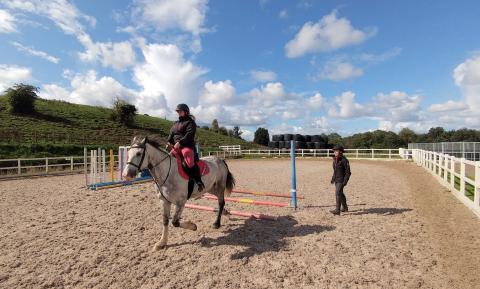A Stud Hand will be responsible for the care of several mares and foals. Handling duties involves turning them out, fetching them in, holding them for teasing, covering, veterinary inspection, farriery and showing them to owners and clients. Stud staff may be required to work at the bloodstock sales after the breeding season.
Working Conditions
Stud hands will normally work around 40 hours a week, but longer on occasions. They may also be expected to cover early mornings, late nights and weekends. Part-time, seasonal and casual work is often available. Most work is outdoors, in all weather conditions, and can involve lifting, carrying, bending, climbing and standing for long periods. Stables can be a long way from towns, so a driving licence may be useful. Some jobs involve travelling and staying away from home.
Salary
Some employers provide accommodation, food, free stabling for their employees’ horses and riding instruction, so individual salaries may vary.
£12,000
£18,000
Getting started
With experience and relevant qualifications you could progress to management or more senior positions. The career structure will vary depending on the size of the organisation, but you may have to move elsewhere to find another job.
Experienced Stud Hands may become Stud Managers. There are also opportunities to work and train abroad.
To become a Stud Hand you should:
- Have a genuine interest in horses and their welfare
- Enjoy working outdoors
- Like working with people.
Volunteering or taking temporary work should improve your chances of getting into the equine industry.
What experienced workers can do
- Maintain the health and well-being of equines
- Maintain harness and saddles
- Groom and clean a horse
- Maintain health and safety and appropriate personal protective equipment
- Be responsible under animal health and welfare and health and safety legislation
- Preparing horses for shows, racing or transport
- Maintain records
- Able to recognise signs of equine illnesses.
Personal qualities you should have
- Have a genuine interest in horses and their welfare
- Good communication skills
- Good organisation skills
- Flexible and adaptable
- Self-motivated
- Have the ability to work alone and also as part of a team.
Next steps
With experience and relevant qualifications you could progress to management or more senior positions. The career structure will vary depending on the size of the organisation, but you may have to move elsewhere to find another job.
Experienced Stud Hands may become Stud Managers. There are also opportunities to work and train abroad.
Useful links
Association of British Riding Schools
